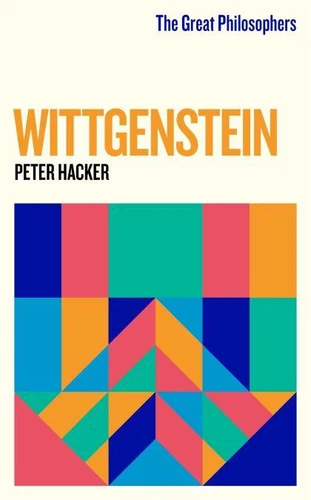The Great Philosophers: Wittgenstein. Wittgenstein
Par :Formats :
Disponible dans votre compte client Decitre ou Furet du Nord dès validation de votre commande. Le format ePub protégé est :
- Compatible avec une lecture sur My Vivlio (smartphone, tablette, ordinateur)
- Compatible avec une lecture sur liseuses Vivlio
- Pour les liseuses autres que Vivlio, vous devez utiliser le logiciel Adobe Digital Edition. Non compatible avec la lecture sur les liseuses Kindle, Remarkable et Sony
- Non compatible avec un achat hors France métropolitaine
 , qui est-ce ?
, qui est-ce ?Notre partenaire de plateforme de lecture numérique où vous retrouverez l'ensemble de vos ebooks gratuitement
Pour en savoir plus sur nos ebooks, consultez notre aide en ligne ici
- FormatePub
- ISBN978-1-78022-172-4
- EAN9781780221724
- Date de parution13/09/2011
- Protection num.Adobe DRM
- Infos supplémentairesepub
- ÉditeurWeidenfeld & Nicolson
Résumé
This highly accessible account offers an illuminating introduction to Wittgenstein's philosophy of mind and to his conception of philosophy. Combining passages from Wittgenstein's writings with detailed interpretation and commentary, Hacker leads us into a world of philosophical investigation in which 'to smell a rat is ever so much easier than to trap it.'Wittgenstein claimed that the role of philosophy is to dissolve conceptual confusions, to untie the knots in our understanding that result from entanglement in the web of language.
He overturned centuries of philosophical reflection on the nature of 'the inner', of our subjective experience and of our knowledge of self and others. Traditional conceptions of 'the outer', of human behaviour, were equally distorted and so too was the relation between the inner and the outer. Hacker shows how Wittgenstein's examination of our use of words clarifies our notions of mind, body and behaviour.
He overturned centuries of philosophical reflection on the nature of 'the inner', of our subjective experience and of our knowledge of self and others. Traditional conceptions of 'the outer', of human behaviour, were equally distorted and so too was the relation between the inner and the outer. Hacker shows how Wittgenstein's examination of our use of words clarifies our notions of mind, body and behaviour.
This highly accessible account offers an illuminating introduction to Wittgenstein's philosophy of mind and to his conception of philosophy. Combining passages from Wittgenstein's writings with detailed interpretation and commentary, Hacker leads us into a world of philosophical investigation in which 'to smell a rat is ever so much easier than to trap it.'Wittgenstein claimed that the role of philosophy is to dissolve conceptual confusions, to untie the knots in our understanding that result from entanglement in the web of language.
He overturned centuries of philosophical reflection on the nature of 'the inner', of our subjective experience and of our knowledge of self and others. Traditional conceptions of 'the outer', of human behaviour, were equally distorted and so too was the relation between the inner and the outer. Hacker shows how Wittgenstein's examination of our use of words clarifies our notions of mind, body and behaviour.
He overturned centuries of philosophical reflection on the nature of 'the inner', of our subjective experience and of our knowledge of self and others. Traditional conceptions of 'the outer', of human behaviour, were equally distorted and so too was the relation between the inner and the outer. Hacker shows how Wittgenstein's examination of our use of words clarifies our notions of mind, body and behaviour.



